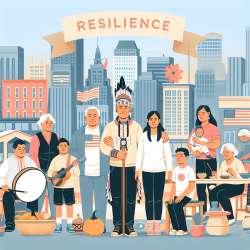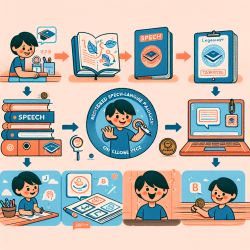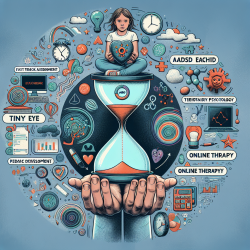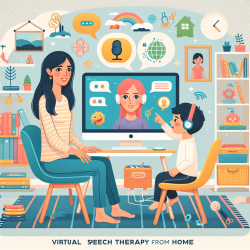In the heart of bustling urban landscapes, American Indian and Alaska Native (AI/AN) families are weaving a tapestry of resilience. Despite the challenges posed by geographical and social distances from tribal networks, these families are finding strength in their unique cultural heritage and family dynamics. A recent study titled Risk and Resilience Among Families in Urban AI/AN Communities: the Role of Young Adults sheds light on how young adults are pivotal in fostering family resilience.
The Role of Young Adults in Family Resilience
Young adults in urban AI/AN communities are emerging as key players in their families' resilience. The study reveals that these individuals are not only willing but eager to take on active roles in minimizing risks and strengthening family bonds. This involvement ranges from participating in traditional practices to engaging with extended family networks.
The research highlights that young adults can be agents of change within their families, using both practical and traditional methods to support resilience. This includes participating in cultural activities, storytelling, and maintaining strong communication channels within the family unit.
Cultural Practices as a Pillar of Strength
Cultural practices play a vital role in the resilience of urban AI/AN families. These traditions serve as a bridge connecting individuals to their heritage, offering a sense of identity and belonging. The study emphasizes the importance of engaging in traditional activities such as storytelling, drumming, and other cultural ceremonies.
Through these practices, families can reinforce their cultural values and beliefs, providing a protective buffer against external stressors. The communal aspect of these activities also fosters a sense of unity and support among family members.
Extended Family Networks: A Source of Support
In addition to immediate family members, extended family networks are crucial in supporting urban AI/AN families. These networks often include grandparents, aunts, uncles, and even community elders who provide guidance and support.
The study found that these extended networks play a significant role in shaping family dynamics and supporting resilience. They offer practical assistance such as childcare and transportation while also serving as custodians of cultural knowledge and traditions.
Challenges Faced by Urban AI/AN Families
While resilience is a hallmark of urban AI/AN families, they face numerous challenges. These include economic hardships, limited access to traditional support systems, and exposure to substance use within the community.
The study underscores the importance of addressing these challenges through targeted interventions that focus on strengthening family ties and promoting cultural engagement. By doing so, practitioners can help mitigate the risks associated with these challenges.
Implications for Practitioners
- Engage Young Adults: Encourage young adults to take active roles in their families by participating in cultural activities and maintaining open communication channels.
- Promote Cultural Practices: Facilitate opportunities for families to engage in traditional practices that reinforce cultural identity and resilience.
- Leverage Extended Networks: Recognize the value of extended family networks in providing support and guidance to urban AI/AN families.
- Develop Targeted Interventions: Focus on interventions that address economic hardships and promote access to traditional support systems.
This research provides valuable insights into the dynamics of urban AI/AN families and highlights the potential for young adults to drive positive change within their communities. Practitioners can use these findings to develop culturally sensitive interventions that bolster family resilience and promote well-being.
To read the original research paper, please follow this link: Risk and Resilience Among Families in Urban AI/AN Communities: the Role of Young Adults.










